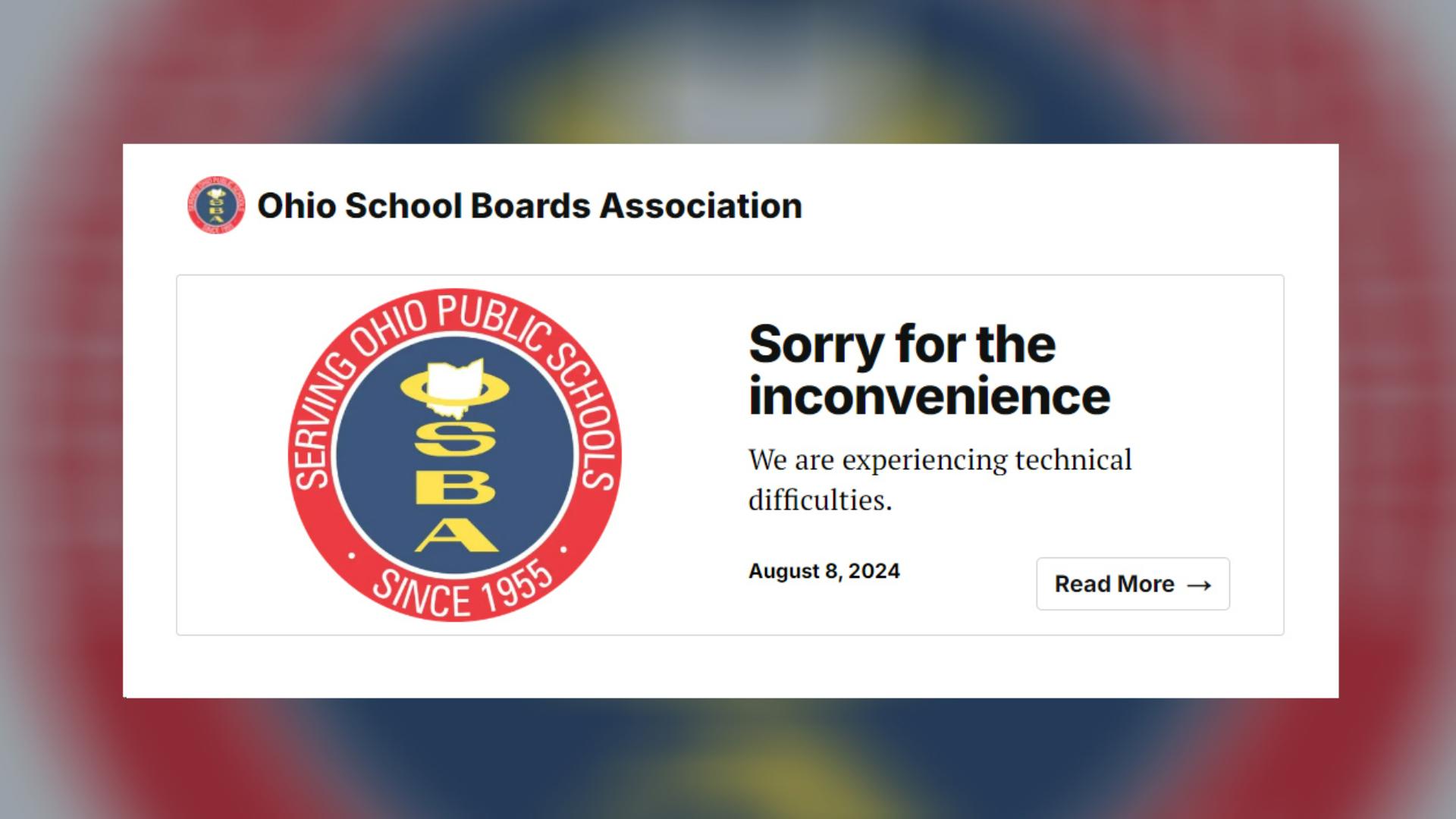COLUMBUS, Ohio — The Ohio School Boards Association was the latest victim of a cyberattack.
CEO Kathy McFarland sent an email to members on Friday informing them of the situation and warning them to be watchful of their accounts for unusual activity. The organization is composed of more than 700 school boards and nearly 3,500 elected and appointed members.
The OSBA computer network was attacked on Thursday, affecting normal operations. OSBA immediately severed its network connection to the internet to limit further damage.
“We recognize this incident may cause some inconvenience and we appreciate your understanding,” McFarland said in her statement. “OSBA does not typically store any sensitive member personal data, such as social security numbers or financial information and we have no reason at this time to believe that any sensitive data from members has been compromised. However, it is always a good idea to remain vigilant by monitoring your accounts and being cautious of any unusual activity.”
Anyone who needs to reach OSBA is asked to call 614-540-4000 while the email system is down.
This all comes a month after a hacker group claimed responsibility for a ransomware attack on the city of Columbus.
The group, Rhysida, claimed to have 6.5 terabytes of city data, enough to hold more than 42 million document pages. The group claimed to have access to surveillance video, building information and personal information of employees.
The city has been crippled since at least mid-July when technology experts realized the city's infrastructure was under attack.
Columbus Mayor Andrew Ginther said in an earlier interview he made the decision to disconnect the city from all external communications on July 18.
Here’s how you can protect yourself online:
- Avoid using your debit card to make online purchases. Use a credit card instead. This way, if your credit card is compromised, it won’t impact your bank account.
- Set a spending limit on your credit card. If your card is compromised, hackers can’t make large purchases.
- Don’t connect to public Wi-Fi. There is no guarantee it’s secured. Experts say if you do connect, never do banking while connected.
- Change your password to a sentence with a space and a character (ie. Gobuckeyes 2024$) Experts say this makes it harder for hackers to crack your password.
- Don’t save your passwords or credit card numbers on your computer. If your computer is hacked, Skeens says that’s the first think they’ll look for.
- Lastly, make sure your phone has face recognition, that way if your phone is lost it will make it more difficult for hackers to get inside.

